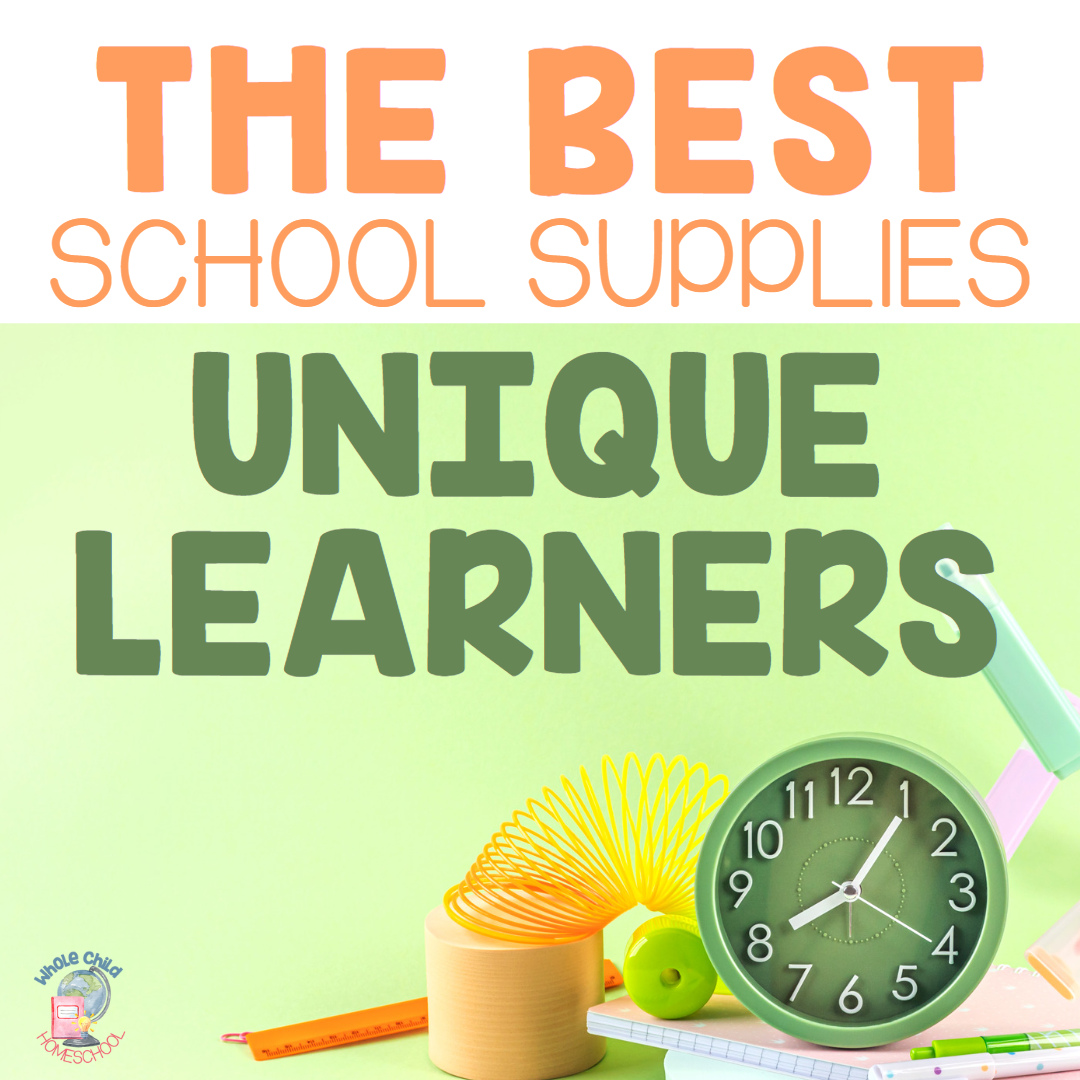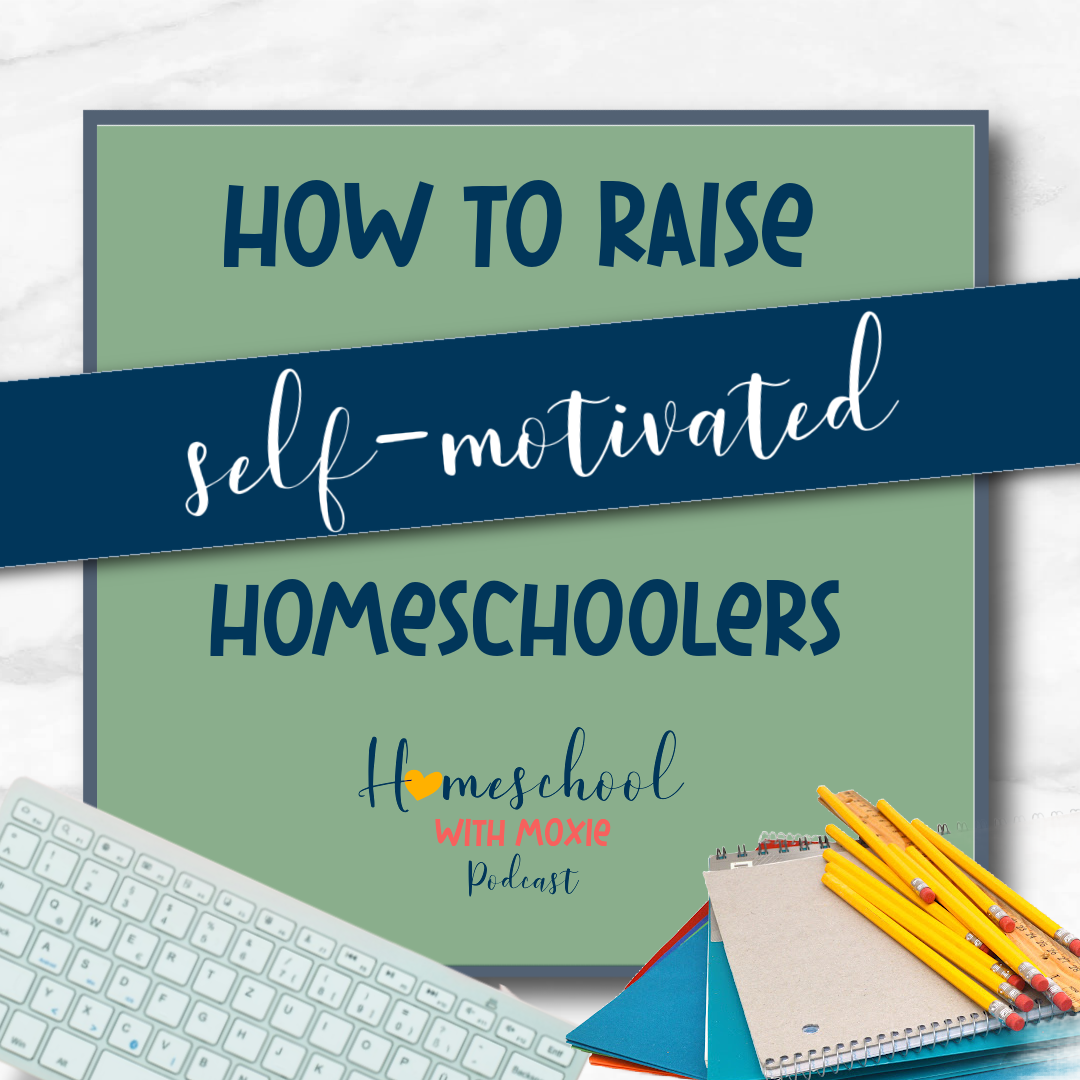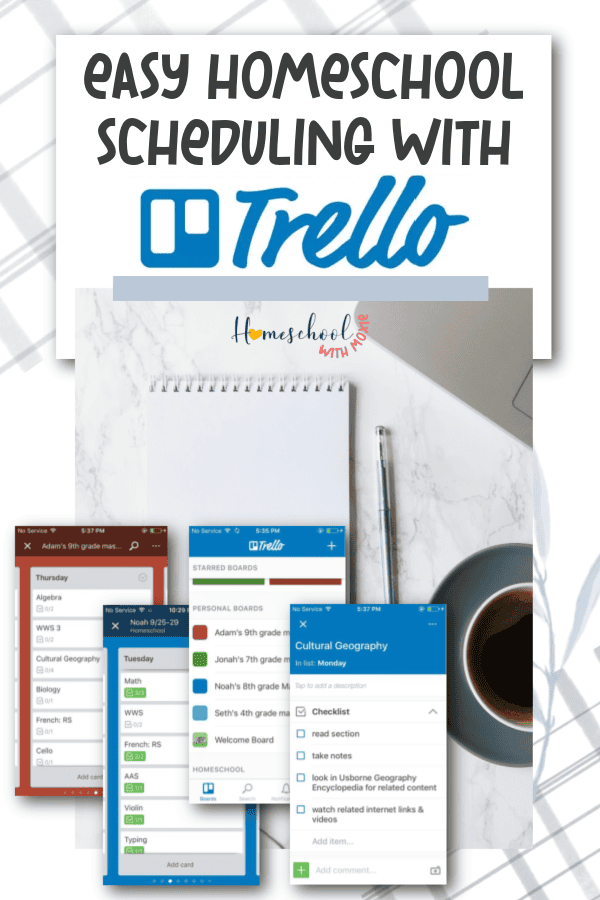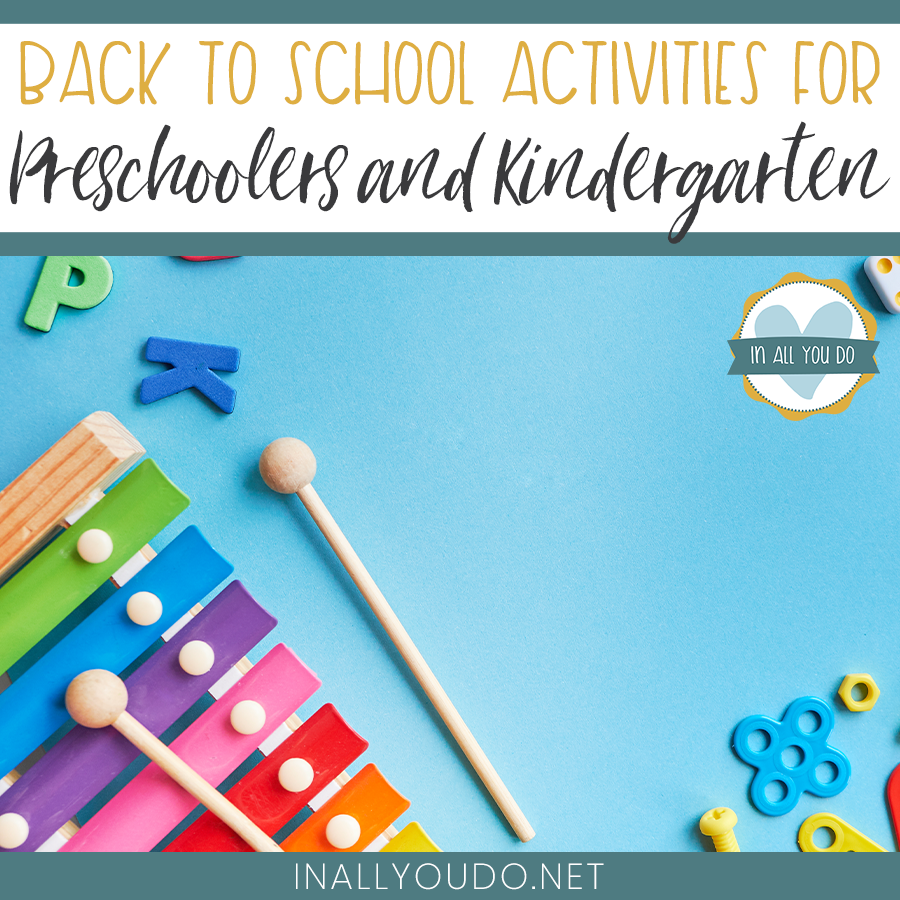How to raise self-motivated homeschoolers is a question I hear often—especially from parents who feel like they’re doing all the heavy lifting. I get it. I’ve been there too. Recently, a mom stopped me after my high school workshop and asked what I meant by “raising kids who know how to learn.” It’s a journey—from hands-on teaching to stepping back as a mentor—and in this post, I’ll share how we made that shift in our homeschool, one small step at a time.

My post includes affiliate links.
Tired of being the engine behind every homeschool day? In episode 314 of the Homeschool with Moxie Podcast, we talk about raising self-motivated learners—kids who take ownership of their education. I’ll share practical steps to shift your role from teacher to coach, and how to build independence one small habit at a time.
How to Raise Self-Motivated Homeschoolers
When I recently gave a talk at our statewide CHAP homeschooling convention, it was focused on homeschooling through the high school years. But I made a statement in that session about raising kids who know how to learn. And I had a mom come up afterward to ask me what I meant.
So I realized that this is another great topic to drill down on! If we want to raise life-long learners who can succeed, what does that look like as we homeschool them from K-12? That’s what we’re tackling today.
Because we want our kids to take more and more responsibility for their own education as we transition to a mentor or coach role as the homeschool parent.
You’re not just teaching curriculum — you’re teaching your kids how to own their learning.
Listen to episode 314 of the HWM Podcast to learn more!
Start with the End in Mind
You should be working yourself out of a job from the beginning. How will you get there?

You have to realize that at the beginning, yes, you will be required to have more of a hands-on role with your kids. But as you progress through the years, that involvement should necessarily go down as your child picks up more responsibility for their learning.
This does take a mindset shift to see what active learning looks like in contrast with a lot of passive learning that takes place in a traditional classroom setting where the teacher is working harder than the kids!
By the high school years, your teen should be very self-motivated because you’ve taken baby steps to get there through their entire education.
After all, you’re raising your kids to be independent learners in the real world after they leave your homeschool. You’re raising adults who are responsible for their own learning and success. Give them that vision of what the future can look like for them.
Choose the Right Curriculum
Raising self-motivated kids who can be responsible learners does depend on choosing the right homeschool curriculum! Some materials that are written for a traditional classroom setting just do not translate well with helping kids become independent learners. In other words, if every lesson relies on you as the parent to walk your child through it, then it might be time to look for a more open and go option.
Remember – your little ones, especially before they’re reading, will absolutely still need alot of help from you! We’re talking about kids who should be able to walk through more independently because they’re older. This happens in baby steps.
I recommend that you find homeschool-friendly, student-directed materials as much as possible. Curriculum that’s written to the student, or user-friendly online platforms, help to give your kids that ability to take personal responsibility for their learning.
Much of the curriculum that we review here on this site and on our YouTube channel is geared toward being homeschool friendly.
Train in Procedures and Routines
In order to help your kids gradually gain more independence in their schoolwork, you need to teach your kids how to manage their day. You do that by showing them the procedure for each course. Make sure they can answer the question: “What should I be doing now?”
When you establish routines early and reinforce them, you’re helping your kids take on responsibility for their learning. And don’t overthink what a routine is – it’s simply the flow of your day.
Take Baby Steps Toward Independence
Taking baby steps toward independence starts when your kids are young, and then you’ll build gradually on that foundation.
Use tools like workboxes and checklists for younger kids. Assign one or two independent subjects early on and grow that independence through the years.
Transitioning in Middle and High School
When your kids enter the middle and high school years, your role as the homeschool parent will shift even more. By high school, your teens should be checking their own answers and tracking grades.
Use free tools like Trello or planners to track assignments. Now is the time to teach them time management and task management skills.
The Homeschool with Moxie YouTube Channel includes an entire Trello playlist!
If your student is headed into college after high school, it’s a great idea to introduce dual enrollment opportunities in the high school years. This will greatly increase their responsibility for their learning.
Your Role as Mentor, Not Manager
Your role as the home educator will change through the years and your goal is to work yourself out of a job! You’ll still be involved in the teen years – just differently. Of course, you’ll still troubleshoot struggles and encourage consistency by keeping them accountable, but you won’t be holding their hand through every day.
Your role will change from hands-on and highly involved teacher to coach, mentor, and cheerleader.
Conclusion
The bottom line here is to trust the process and remember that independence is a skill that’s taught, modeled, and nurtured.
What’s one small responsibility your child could own this week?
Back to Homeschool Resources
This week I’ve teamed up with some of my fellow homeschool bloggers to bring you some fantastic tips, resources, and even a few FREEBIES just in time for the Back to Homeschool rush. Be sure to check them out below!


|

|
|

|

|

|

|

